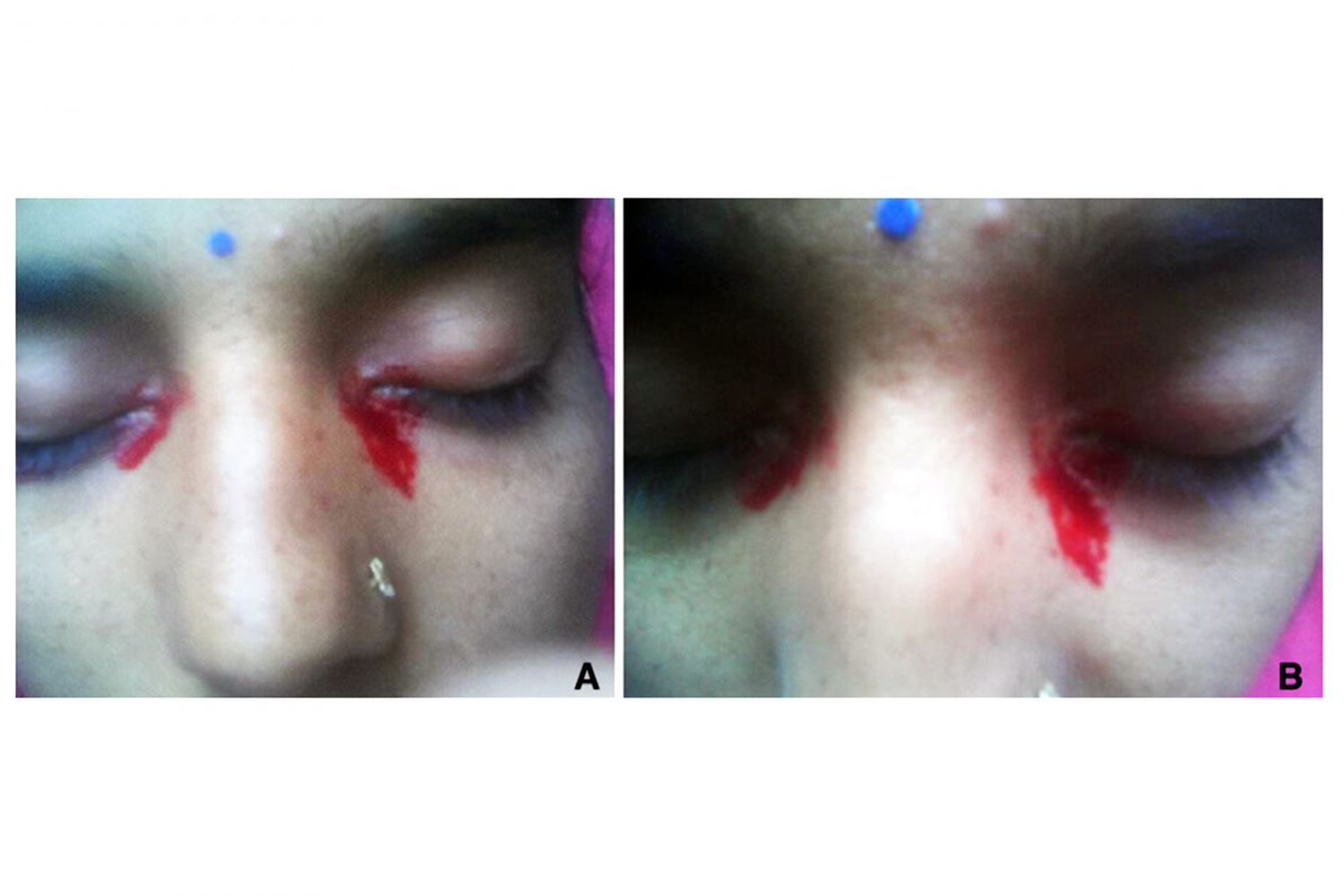Though extremely rare, you can also bleed from other body parts (like your nose, skin, and nipples) during your period.
This story originally appeared on Health.com by Maggie O'Neill.
A new case report in the British Medical Journal examines the case of a 25-year-old woman in India who sought medical attention after she noticed she was crying red tears — and the journal called it a "rare clinical entity."
The woman was suffering from haemolacria — the physical condition in which a person's tears are tinged with blood — and it wasn't her first time experiencing condition. Before she sought treatment, she experienced another episode of bloody tears, one month prior. Both times, the woman was menstruating.
According to the report, published in the journal BMJ Case Reports, the woman did not appear to have any injuries to her eye. An ophthalmologist examined the patient and found that the various parts of her eyes — including her eyelids, conjunctivas, and lacrimal sac areas — looked good, and her intraocular pressure (fluid pressure inside the eye) was found to be normal. The case report says an ear, nose, and throat (ENT) examination was normal, as was a gynecological exam.
Once she was given the all-clear from any other conditions that may have caused the haemolacria — infections, bleeding disorders, certain medications — doctors eventually concluded that her bloody tears were resulting from menstruation, and she was diagnosed with a condition called ocular vicarious menstruation. "In our patient, the fact that ocular bleeding was periodical, used to occur only during menstruation from both the eyes raised the suspicion of vicarious menstrual bleeding," the case report says.
Vicarious menstrual bleeding — which is exactly what it sounds like: cyclical bleeding occurring anywhere that isn't the genitals during menstruation — can affect other body parts too, per the case report, which states that it can also occur in the nose, ears, skin, intestines, lungs, nipples, and other sites. After an individual has been diagnosed with ocular vicarious menstruation, hormonal therapy (like birth control pills) can be used to control the bleeding, per the case report, and vicarious menstrual bleeding usually affects those "between the third and fourth decade of life."
While rare, this isn't the first time vicarious menstrual bleeding has been documented in medical literature: In 2006, JAMA Ophthalmology published a case report featuring a patient who was diagnosed with the condition after her conjunctivas, the membranes that cover the eyes, started bleeding when she got her period. Another case report published by the Journal of Pediatric Ophthalmology and Strabismus in 1988 detailed the case of a 17-year-old girl who, like the patient described in the new BMJ case, started crying bloody tears and was also diagnosed with ocular vicarious menstruation.
The patient in the most recent case study was prescribed oral contraceptives, and subsequently stopped crying bloody tears. "During subsequent 3 months follow-up, no such episode recurred," the case report says.




0 Comments